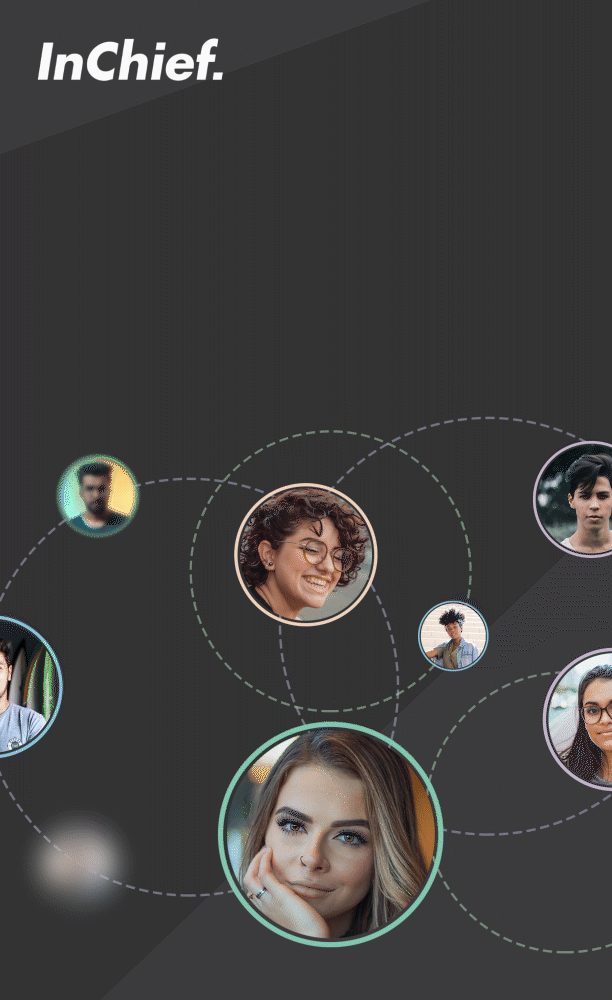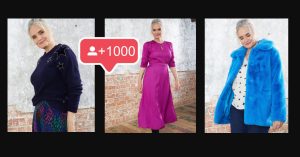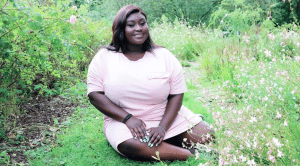Separating the personal and the professional can be tough
It’s easy to think that if only 2% of your followers ‘liked’ a photo of your face, your dog or your artwork, that the other 98% of your audience actively detest your face, your dog or your artwork. This simply isn’t true. First of all, there are hardly any people who hate dogs, and second of all, social media gives us a very warped view of reality and people’s opinions.
Before we get any further, remember this: opinions are not facts. Thoughts are not facts. Negative thoughts and opinions that creep into your head are not real, they’re just thoughts that are trying to get you down. Just because you think a low engagement rate must mean nobody likes you does not mean it’s true at all. Thoughts are not facts. Write it on a post-it and stick it to your laptop screen, now.
As content creators, we care about what we post a lot more than everyone else does. However, likes are given out freely and without much thought, yet are received and analysed with such scrutiny and pressure. Why? It’s hard to not overthink your stats when everything you’re posting is personal to you and specifically about your taste, thoughts and life. But likes aren’t as significant as the internet (or these people who are literally dying for likes) would have us believe.
Think about your last scroll through Instagram, for example. Can you remember the last five posts you liked? Before you pressed like, did you think long and hard about why exactly you liked this post and if it was truly deserving of a like? What about the posts who didn’t get a red heart from you, did you look at each post and think “BLEUGH, oh they’ve got it SO WRONG this is AWFUL and I must tell EVERYONE how CRAP it is”…? No. No to all of the above. This is the same for people scrolling through their feeds and seeing your content – we don’t give likes as seriously as we receive them.
InChief spoke to Helen Campbell, a career coach for creatives (Coaching By Helen Ltd.) who gave us some solid advice around how to not take our engagement rates so personally.
“Expecting our work to nurture us, and relying on it for our happiness, could create an unhelpful need for validation,” she told us. “For our own wellbeing it can be unhealthy if our emotions are on a constant rollercoaster ride of feedback. Finding a way to nurture ourselves – whether through sport, pastimes and/or through friends and family is somewhat essential.
“The key is to set up that support when you are feeling positive so that it can tide you over during the tough times.”
It’s important to remember that social media is only a reflection of reality, and very often it’s totally staged reality, like Love Island. Comparing yourself to the seemingly perfect lives and posts of others is only going to make you feel like you are less than them; especially as we often end up comparing our one life and account to the 57 lives, successes and accounts we’ve just scrolled through. In real life you wouldn’t compare yourself to 57 people, so don’t do it online, either.
Decent posts from your peers or from creators you admire will always seem off the cuff and casually gorgeous, but in reality these creators have likely spent a long time editing them with various software, meticulously planning the perfect caption, and have about 78 shots that didn’t make the cut.
“I take a TON of selfies to choose from,” a creator told InChief (they wish to remain anonymous, but you can think of them as Dave if you like). “I go through and favorite the best ones, then I’ll upload the shortlist to an editing app. After I edit the shortlisted photographs, I’ll choose the best picture from the bunch and upload it to my social media platform and post it. This process takes about an hour and a half.” Hardly a realistic snapshot of a perfect life moment, huh. Oh Dave.
The beautiful thing about the internet is that it gives us access to so many different people, cultures and styles. You being yourself is what being an individual creator is all about anyway, right? Trying to copy the styles of creators who you perceive to be successful is only going to dilute the real you from your posts. It takes a while to build an audience and establish a niche, don’t put pressure on yourself to get this overnight.
“Keep nurturing your wellbeing the whole time,” says Helen. For me my support comes from swimming; nature; other freelance friends; cooking; a meditation app; and journalling. Crucially, it’s different for everyone – you may find you try experimenting with a few things to see what helps you to unwind, and also what helps you build resilience.
“Having a mentor, coach or like-minded and non-judgemental friend can be incredibly helpful when things get really tricky.”
Remember that just because your posts may not have been actively liked or commented on does not mean they weren’t appreciated by your scrolling audience. Due to algorithm joys it’s likely that your audience didn’t see the post anyway, or will see it in two days when you’ve already moved on to something else.
It’s not about you. It’s the internet. Engagement rate is not equal to your self-worth.
Kate Lucey is the author of ‘Get A Grip, Love’: a funny (ish) look at depression and how to live with it. Read a free sample and order your copy here.







